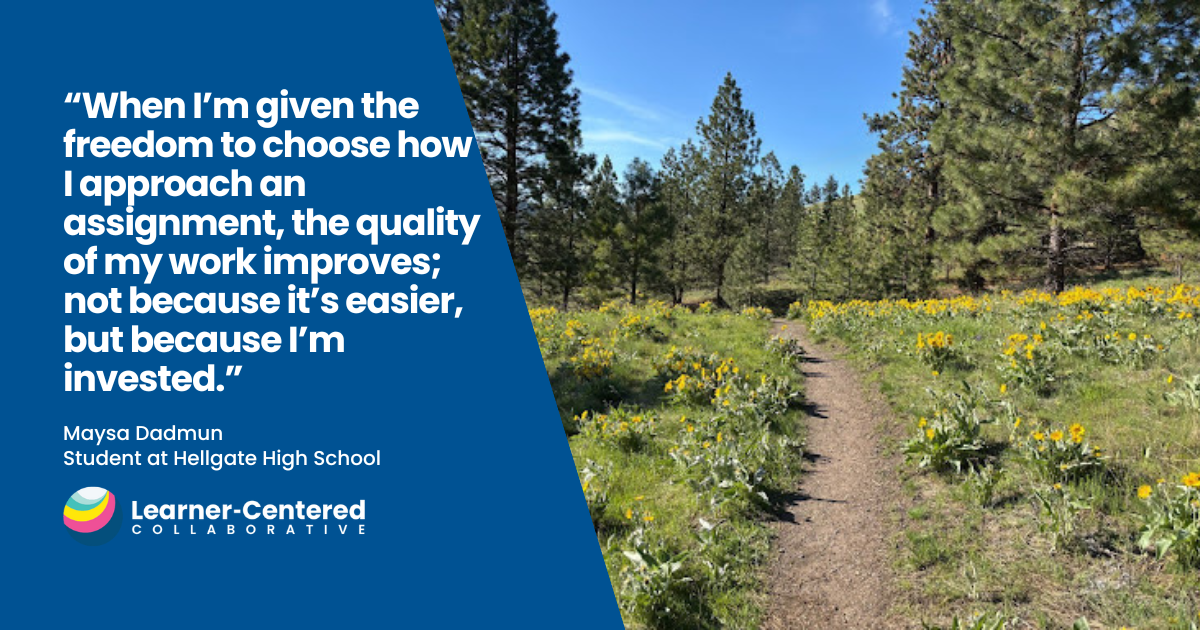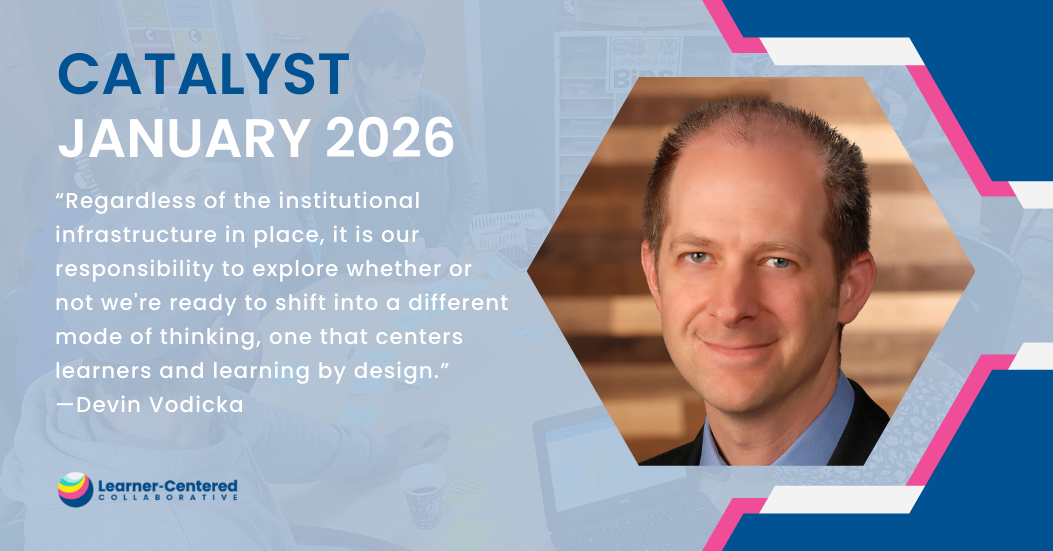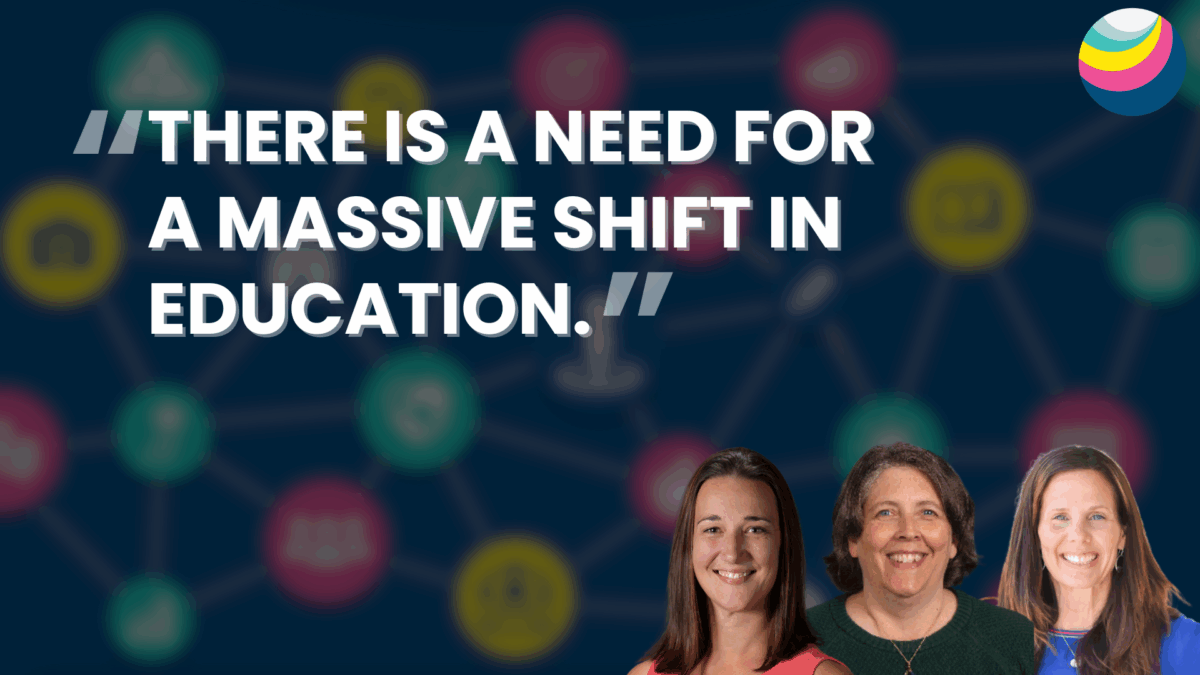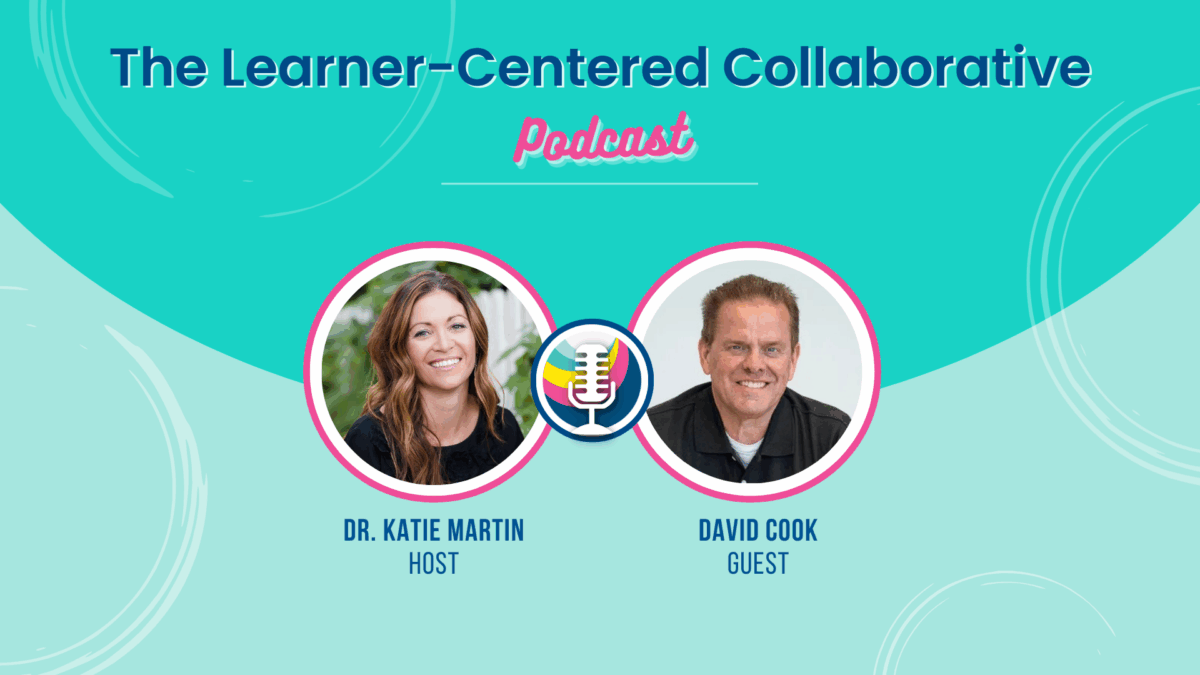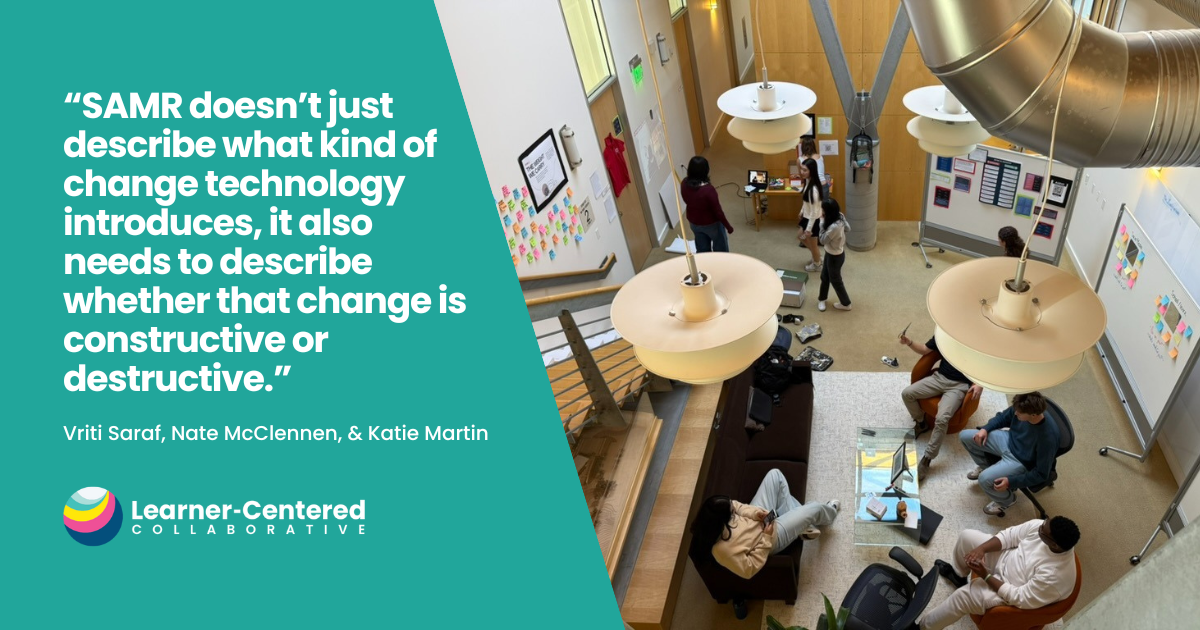This is What Happens When Every Learner Can Confidently Talk About Their Learning
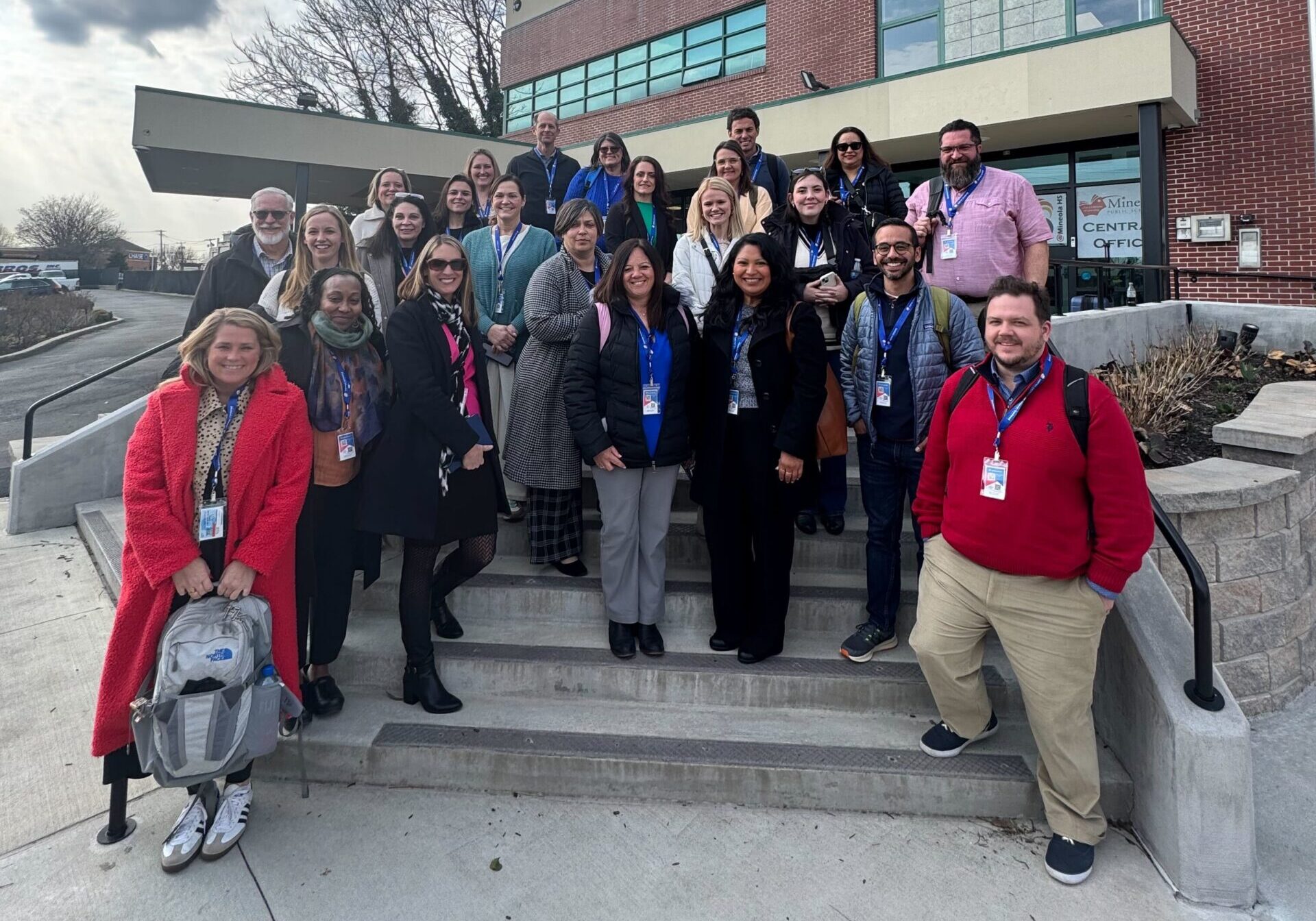
Shifting to learner-centered education is both an iterative process and a collective effort. Our Connections Leadership Cohort recently got an opportunity to see a learner-centered ecosystem firsthand in New York, at Mineola Public Schools, while building stronger bonds within their own teams and across schools.
Beginning with 3rd and 4th grade students greeting us with handshakes and high fives as the bus rolled in, Jackson Avenue School’s BRAVE Committee showed the agency and leadership that is integral to the school’s design. These student ambassadors confidently led our Cohort in small groups to a range of classrooms that highlighted personalized and competency-based learning.
“Pop, Buzz, Zap:” Knowing Where You Are and What You Need to Work On
Throughout the district, students, teachers, administrators, and parents are well-versed in the Badge Book—a curated list of essential standards for students to master at each grade level. Students each have their own copy, enabling them to track their learning progress for each standard in developmentally appropriate language. Each family has a copy to keep at home as well, lovingly called the Grown-up Companion. As a result, every member of the Mineola community is able to speak to learning goals and progress in the same way, demonstrating a clear commitment by the district to coherence, communication and aligned systems, key enabling conditions needed in a learner-centered ecosystem.
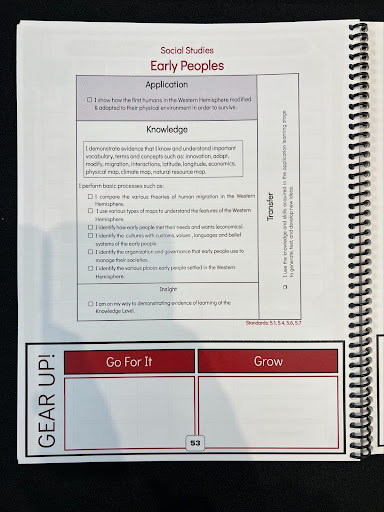
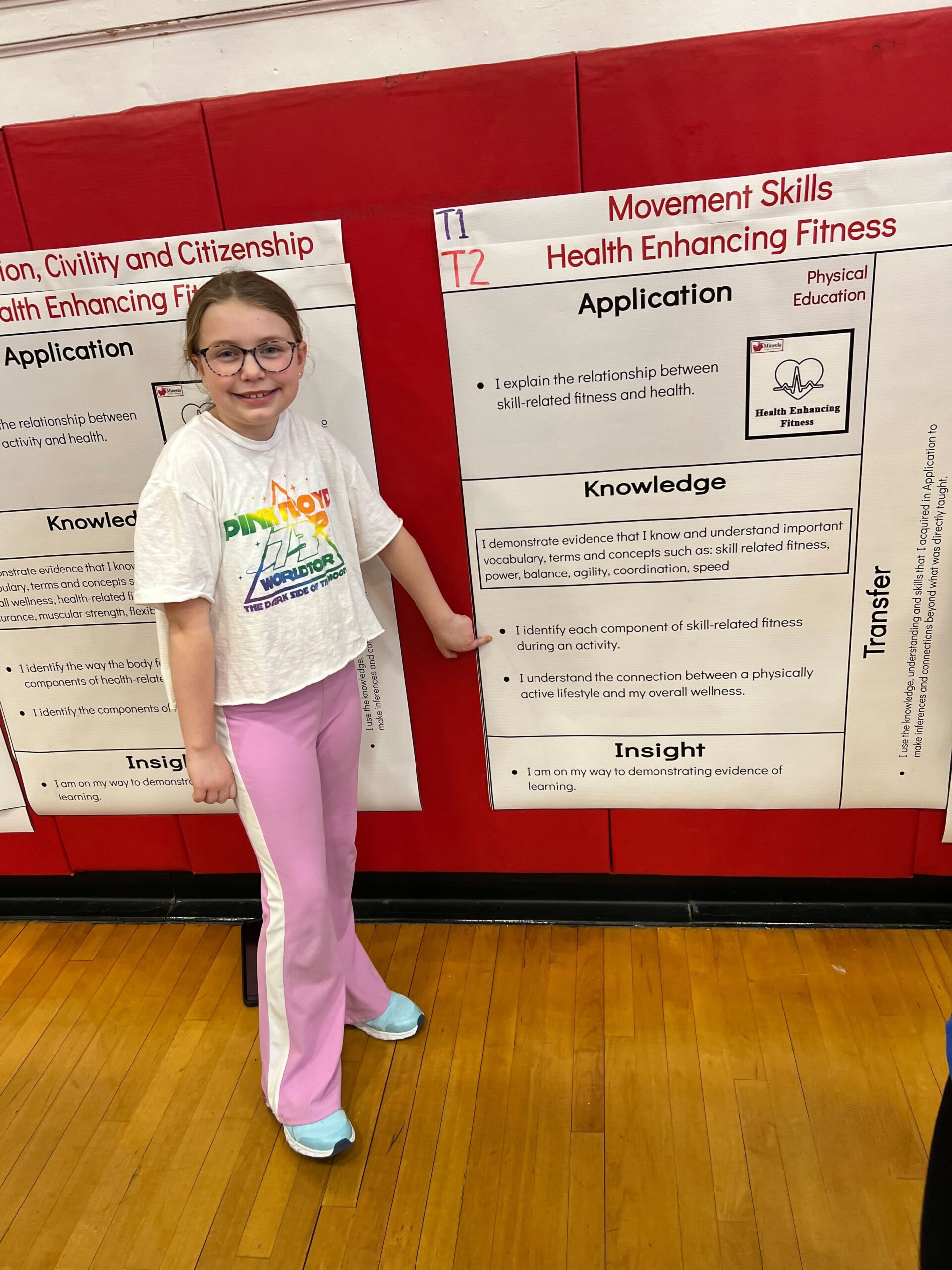
Learn more about Mineola’s Badge Books and other schools’ approaches to Competency-Based Reporting in Learner-Centered Collaborative’s Competency-Based Reporting Playbook.
“Evolution not Revolution:” Managing Change
The alignment of systems did not happen overnight. Catherine Shanahan, principal at Jackson Avenue School, emphasized that the learner-centered shifts represents “evolution not revolution.” Dr. Nagler says the same, noting that there have been many iterations even of the Badge Book itself, and that the entire community has been involved in the changes. For example, after shifting to competency-based learning, parents were involved in the report card redesigns so that the learning progressions made more sense to them. The district assigned numbers to each level of understanding so that parents better understood where students were in their learning.
In some ways, Mineola’s shift was new, but in many ways it was not. During a Q&A with middle school students and teachers, a teacher noted that this transition felt more familiar than not. “We’ve always done it this way, even with state standards. It’s just that before, [the students] didn’t know what they didn’t know.” A middle schooler echoed this on the panel when she held up her Badge Book and noted, “it really shows me how much I need to improve.”
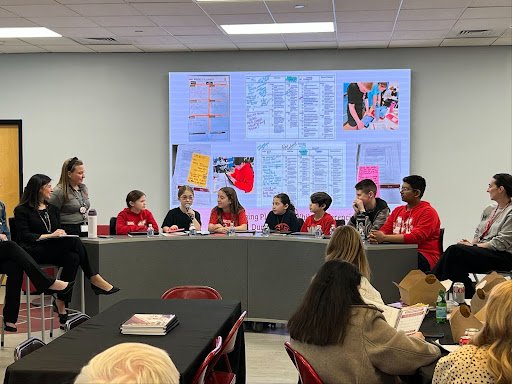
Connections to the World of Work
In 2022 Mineola Public Schools, listening to the needs of learners in their community, started Synergy@ Mineola High School, where high school students would work through courses at their own pace and collaborate with community partners through a variety of real-world learning experiences. One of those learning experiences is working in the student-run cafe, which is part of the Business Pathway program for high school students to be college and career ready. After visiting the Synergy campus, the Connections cohort toured the Apple headquarters in New York City, and heard from Apple Education executives speak about the future of work and what skills they are looking for in employees. The connection to what Mineola Public Schools is doing in their K-12 environment was striking.
The core skills these Apple executives look for and see as necessary in an ever-evolving world include collaboration and listening. They emphasized the importance of being able to understand different perspectives, persisting in the face of challenges, and being flexible. The team spoke to the various interview processes applicants experience that require these skills and the teamwork necessary to move from idea to product.
In order to build those skills, we need more school ecosystems like the ones in Mineola, where there are real-world, collaborative learning experiences based on core knowledge and skills as well as structures for learners to know where they are and what they need to do next.
Applications to join the 2025-26 Connections Leadership Cohort are currently open. Learn more and apply today!
